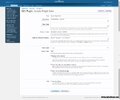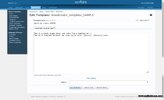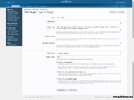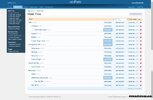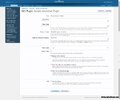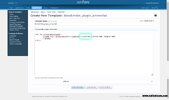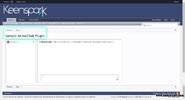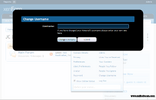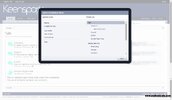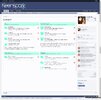This add-on provides a new kind of node in XenForo called a plugin, which allows a portion of HTML code or a template to be embedded into the node tree to display anywhere you want in the hierarchy without the need for template modifications or other hacks.
Using plugin nodes, you can integrate third-party components such as Flash or Java applications, audio/video HTML5 embeds, or feature codes for software such as CometChat or ArrowChat into the node tree.
Keep reading to learn about all the available features.
Since the plugins are true nodes, access can be controlled using permissions just like for any traditional kind of node, and they can be moved around, hidden, or edited as necessary in the node tree.
There are several options for how visitors can access your plugins. Just like other node types, they will appear in the node list and all appropriate navigation menus if you enable them to do so. Whether or not you display them in the node list, they can be enabled to allow direct access as standalone pages, similarly to built-in page nodes, by clicking on their titles if visible or by visiting their URL's. Unauthorized direct access by URL for non-standalone nodes will be redirected to the parent node's forum list where the plugin is seen.
You can include the plugin's code either as a simple block of HTML or by providing the name of a custom template in your system. Either way, you may choose to hide the node icon, title, and description when the plugin is displayed in the node list to keep it tidy. If the title is shown, it will only be clickable if the plugin has standalone access.
When using a template instead of simple HTML for your code, you can streamline the deployment of different plugins based on the same third-party application by passing them template variables. For example, for CometChat or ArrowChat chat room embed codes, which are generally identical HTML for all rooms except for the room ID, you can generalize the HTML into a template with the ID number filled in from a template variable set on a per-node basis. This means you can easily modify the styling or configuration of all plugins that use the same template at once without having to edit each node individually.
Using plugin nodes, you can integrate third-party components such as Flash or Java applications, audio/video HTML5 embeds, or feature codes for software such as CometChat or ArrowChat into the node tree.
Keep reading to learn about all the available features.
Since the plugins are true nodes, access can be controlled using permissions just like for any traditional kind of node, and they can be moved around, hidden, or edited as necessary in the node tree.
There are several options for how visitors can access your plugins. Just like other node types, they will appear in the node list and all appropriate navigation menus if you enable them to do so. Whether or not you display them in the node list, they can be enabled to allow direct access as standalone pages, similarly to built-in page nodes, by clicking on their titles if visible or by visiting their URL's. Unauthorized direct access by URL for non-standalone nodes will be redirected to the parent node's forum list where the plugin is seen.
You can include the plugin's code either as a simple block of HTML or by providing the name of a custom template in your system. Either way, you may choose to hide the node icon, title, and description when the plugin is displayed in the node list to keep it tidy. If the title is shown, it will only be clickable if the plugin has standalone access.
When using a template instead of simple HTML for your code, you can streamline the deployment of different plugins based on the same third-party application by passing them template variables. For example, for CometChat or ArrowChat chat room embed codes, which are generally identical HTML for all rooms except for the room ID, you can generalize the HTML into a template with the ID number filled in from a template variable set on a per-node basis. This means you can easily modify the styling or configuration of all plugins that use the same template at once without having to edit each node individually.
